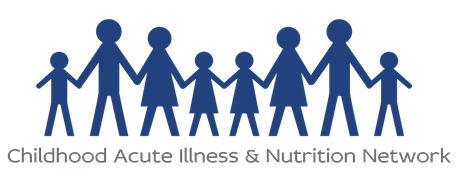August 18, 2025
New CHAIN Network study aims to support families of children after hospital discharge
 Researchers of the Childhood Acute Illness and Nutrition (CHAIN) Network, a group of clinical experts and scientists seeking to optimize care for vulnerable children in limited resource setting, investigated how often, when, and why young children in sub-Saharan Africa and South Asia die when admitted to hospitals. While hospital admission and treatment help many children recover, it may not alter the trajectory of their health, which is dictated by the child, family, and socio-cultural factors, leading to poor health outcomes and preventable deaths.
Researchers of the Childhood Acute Illness and Nutrition (CHAIN) Network, a group of clinical experts and scientists seeking to optimize care for vulnerable children in limited resource setting, investigated how often, when, and why young children in sub-Saharan Africa and South Asia die when admitted to hospitals. While hospital admission and treatment help many children recover, it may not alter the trajectory of their health, which is dictated by the child, family, and socio-cultural factors, leading to poor health outcomes and preventable deaths.
Leveraging what they’ve learned to develop new child survival interventions, CHAIN researchers launched a two-year study titled, “CHAIN-PoP: A Proof of Principle Trial Supporting Families of Children After Hospital Discharge,” to evaluate a combined intervention of health system strengthening at discharge and increased support to families of high-risk children. The added educational and financial support may improve caregivers’ empowerment and change the decision-making dynamics within the household in a favorable way.
The study team will assess changes in caregiver behaviors and health system processes, as well as the feasibility, acceptability, and costs of implementing the intervention in both rural and urban hospital settings across Africa and South Asia. They will also explore how household vulnerability (considered a crucial step in avoiding the adverse effects of catastrophic physical, social, and economic risks) affects study results. Ultimately, the findings will help refine the intervention package and inform the design of a larger trial aimed at reducing child mortality.
The team draws from individual expertise and collaborative partnerships between multiple global health research institutions:
University of Washington & Kenya Medical Research Institute (KEMRI): Dr. Kirk Tickell (epidemiology, clinical trials), Dr. Arianna Means (implementation science, mobile communications interventions), Dieudonne Hakizimana (implementation science), Dr. Benson Singa (epidemiology, clinical trials).
KEMRI-Wellcome Trust Research Programme & University of Oxford: Professor Jay Berkley (global health, epidemiology, clinical trials), Professor Sassy Molyneux (social science, ethics, behavior change), Dr. Dorothy Oluoch (social science, health services interventions), Consolata Chesang (social science), and Dr. Gulraj Grewal (health systems interventions).
Icddr,b Bangladesh: Md. Fakhar Uddin (social science, behavior change), Dr. Shehrin Shaila Mahmood (health economics)
Johns Hopkins University: Professor Judd Walson (global child health, policy, clinical trials)